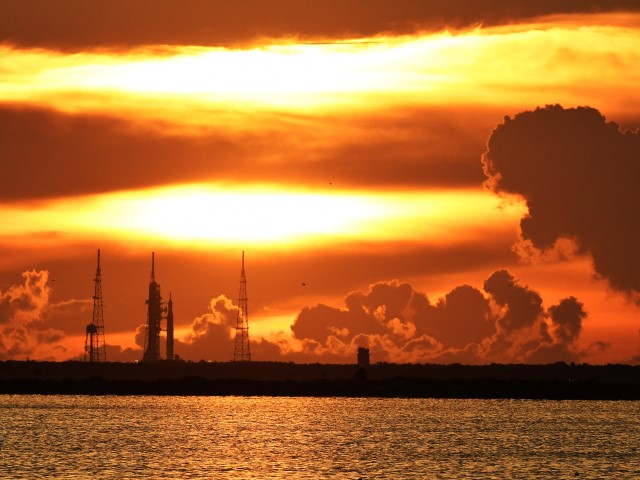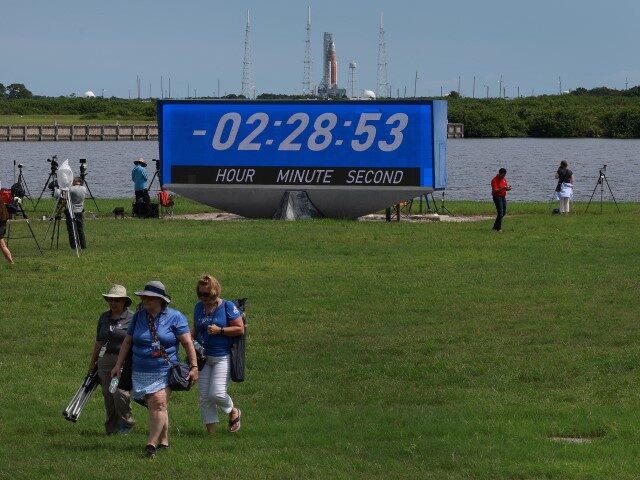NASA has again delayed the launch of the Artemis I after engineers discovered another fuel leak approximately three hours from the beginning of its launch window.
It is the second time this week that the launch was postponed after the first attempt also experienced engine leak issues two hours before its launch window.
The postponement of the launch was announced at approximately 11:17 a.m. Eastern via a NASA blog post:
Teams encountered a liquid hydrogen leak while loading the propellant into the core stage of the Space Launch System rocket. Multiple troubleshooting efforts to address the area of the leak by reseating a seal in the quick disconnect where liquid hydrogen is fed into the rocket did not fix the issue. Engineers are continuing to gather additional data.
The #Artemis I mission to the Moon has been postponed. Teams attempted to fix an issue related to a leak in the hardware transferring fuel into the rocket, but were unsuccessful. Join NASA leaders later today for a news conference. Check for updates: https://t.co/6LVDrA1toy pic.twitter.com/LgXnjCy40u
— NASA (@NASA) September 3, 2022
Engineers had started detecting problems with a liquid hydrogen leak at approximately 7:24 a.m. Eastern and began troubleshooting.
After fixing the problem the first time, the liquid hydrogen leak problem occurred approximately three times again. Following the announcement of a leak for the fourth time at 10:28 a.m. Eastern, the launch was called off an hour later.
“We’ll go when it’s ready,” NASA administrator Bill Nelson said moments after the launch was canceled. “We don’t go until then, and especially now on a test flight because we are going to stress this and test it, and test that heat shield and make sure it is right before we put four humans up on the top of it.”

NASA’s Artemis 1 moon rocket sits on pad 39-B at the Kennedy Space Center in Cape Canaveral, Florida, after sunrise on September 2, 2022, as seen from Titusville, Florida. (Paul Hennessy/Anadolu Agency via Getty Images)
Nelson added that the mission management meeting team is meeting Saturday afternoon to see whether there is a possibility of launching the rocket soon, or if not, to decide to place the rocket into the vehicle assembly building.
If the rocket is placed into the assembly stage, NASA will then aim for an October launch that will most likely occur in the middle of the month.
There is still an opportunity for the mission to launch on either September 5 or 6, CNN reported.
The Artemis I was slated to launch from the Kennedy Space Center in Cape Canaveral, Florida. The stack holds both the Space Launch System rocket and the Orion spacecraft.
NASA is hoping to bring astronauts back to the moon by 2025. The unmanned Artemis I via Orion – which can hold four astronauts – was set to circle the moon’s orbit on an approximately 37-day long mission before returning to earth and splashing down in the Pacific Ocean in October.
The total distance of the mission is approximately 1.3 million miles.
NASA Inspector General Paul Martin told Congress earlier this year that the estimated cost of each Artemis Mission is approximately $4.1 billion, Breitbart News reported.
The last time humans set foot on the moon was in December 1972, on the Apollo 17 project.
You can follow Ethan Letkeman on Twitter at @EthanLetkeman.

COMMENTS
Please let us know if you're having issues with commenting.